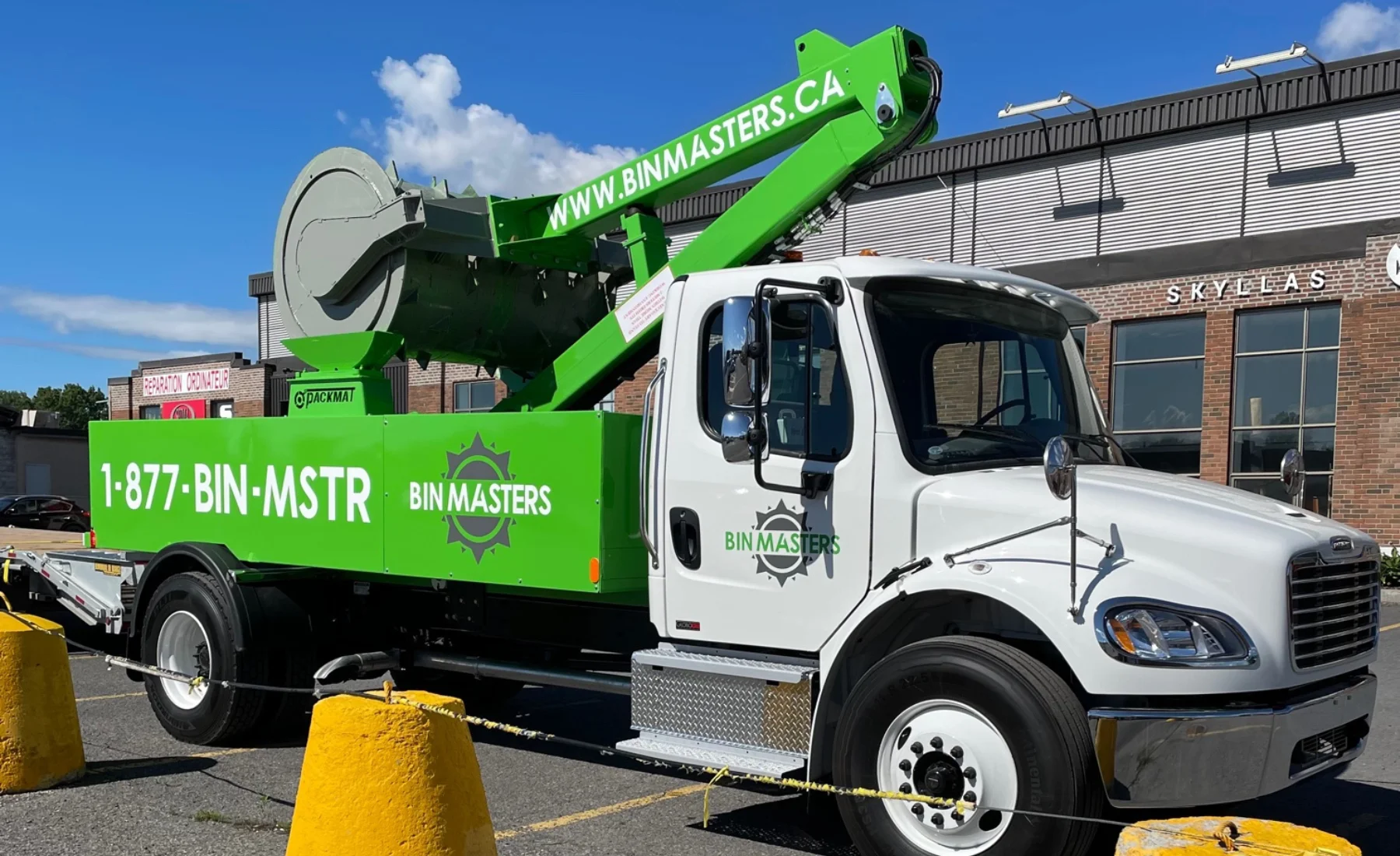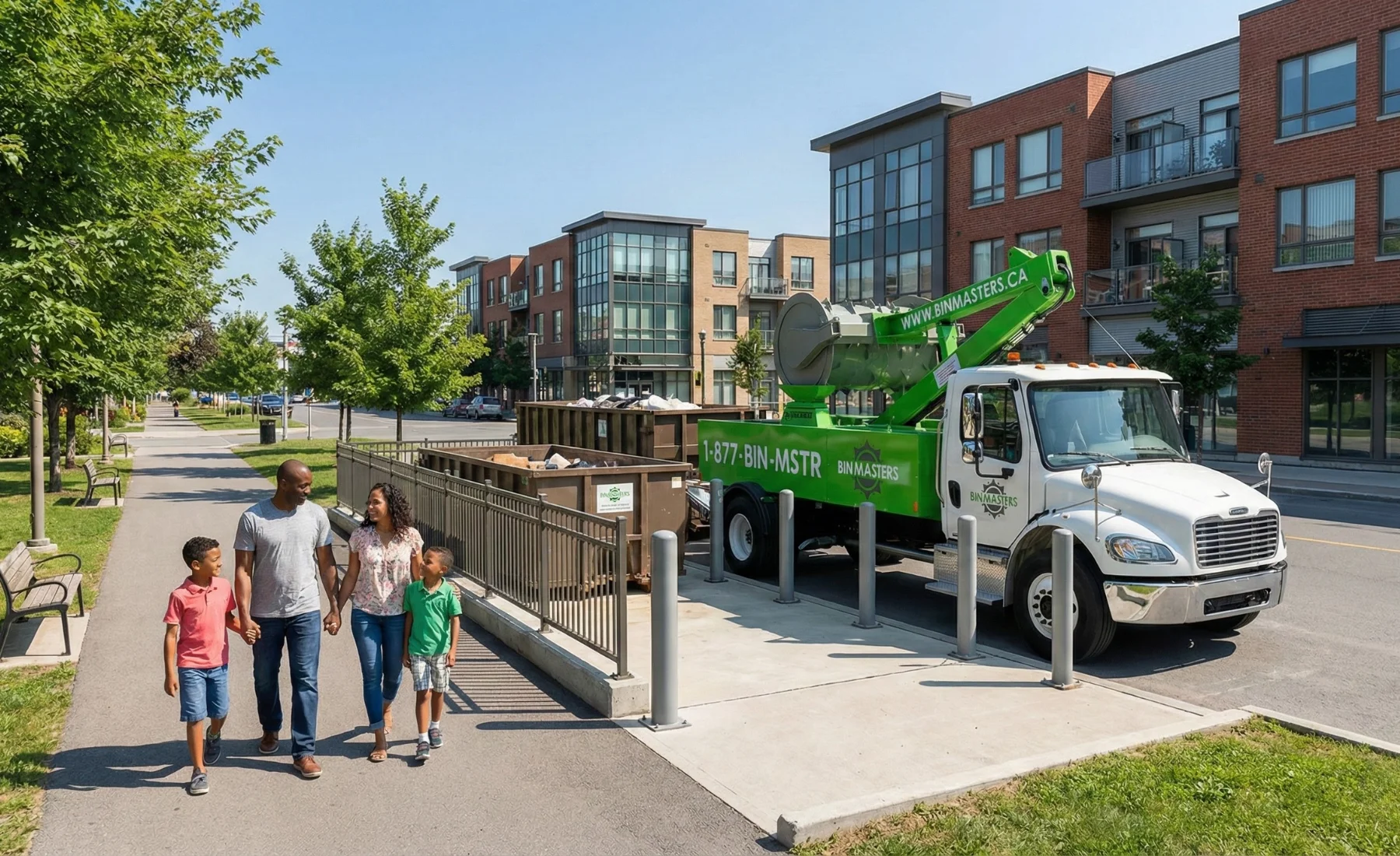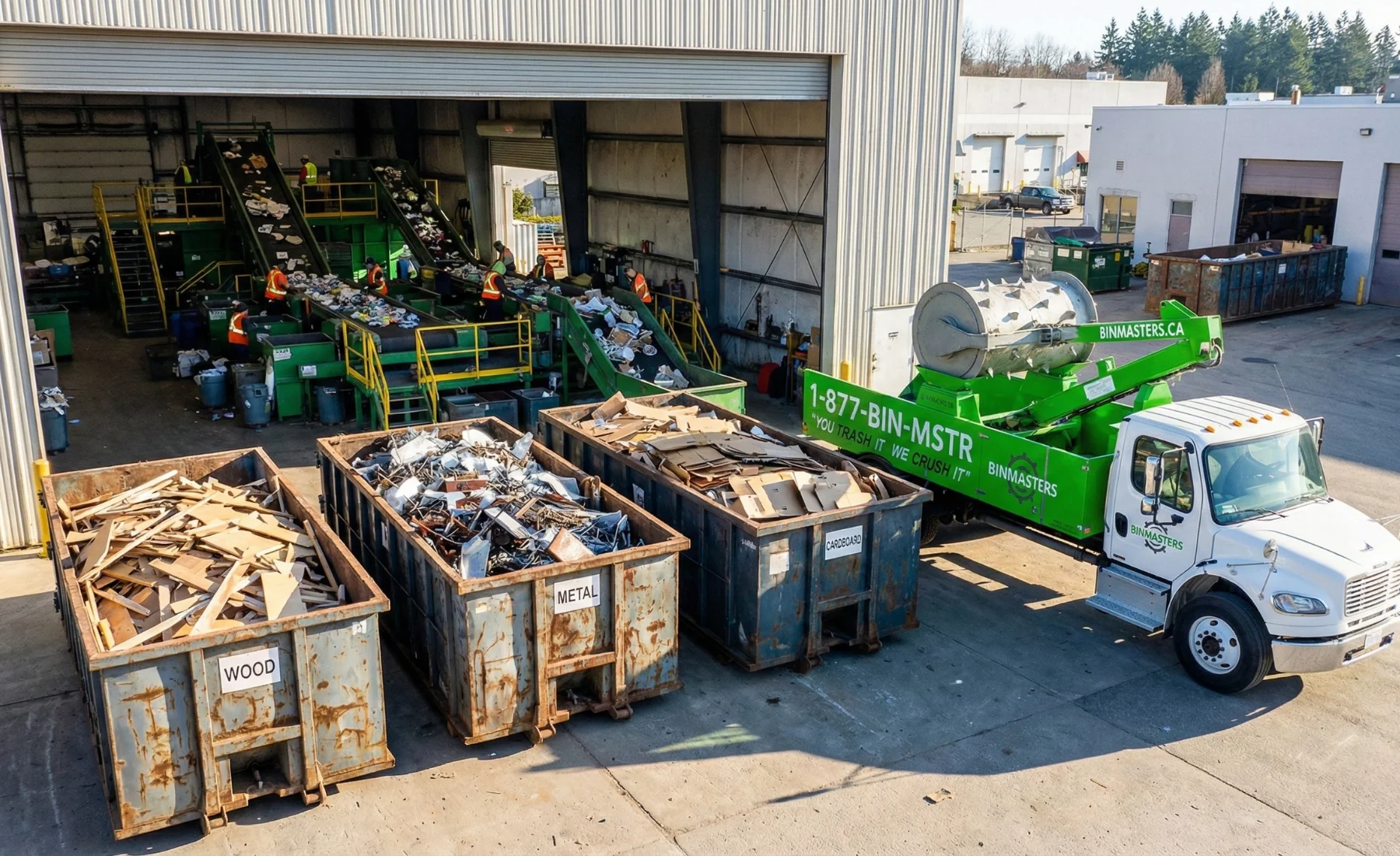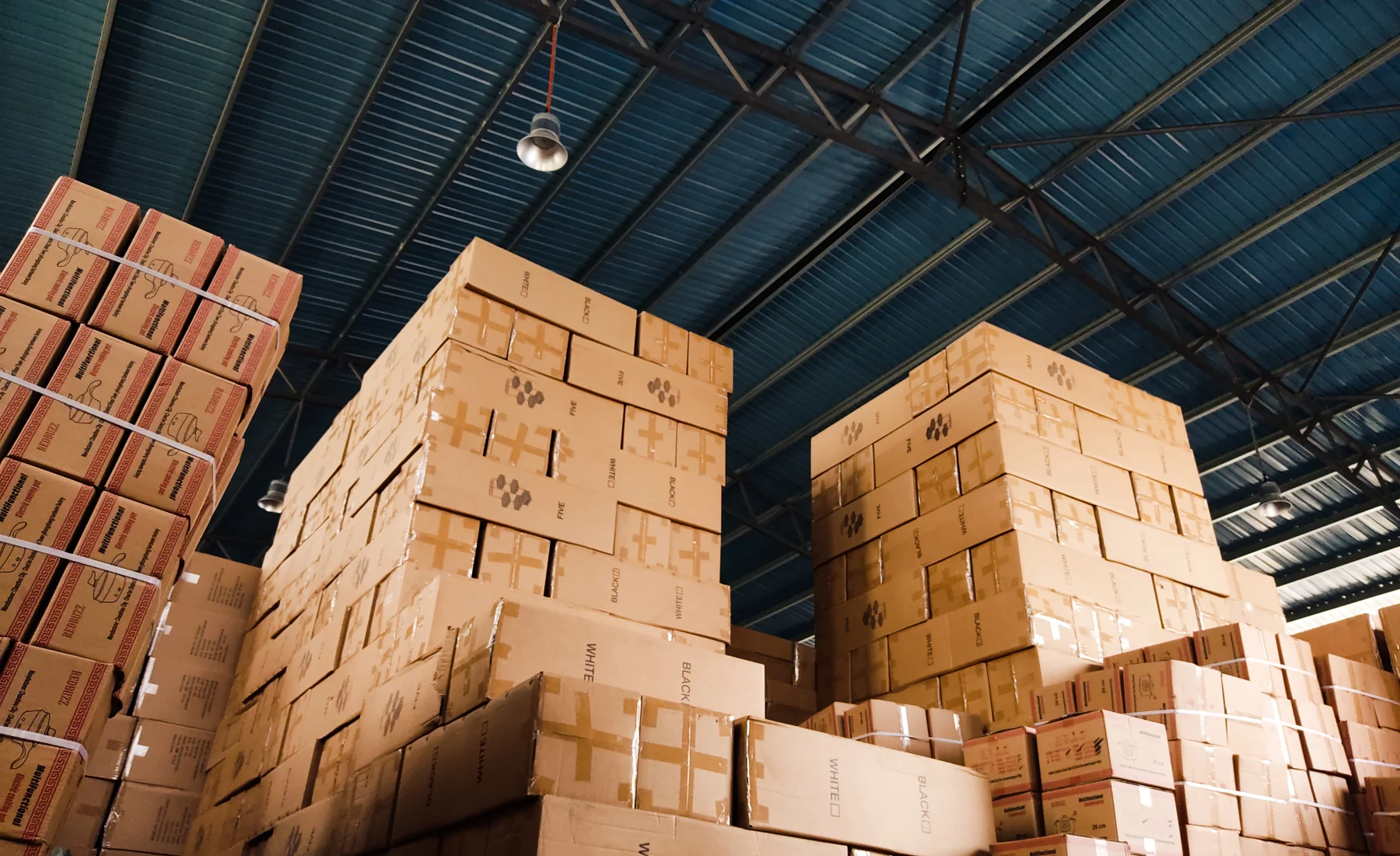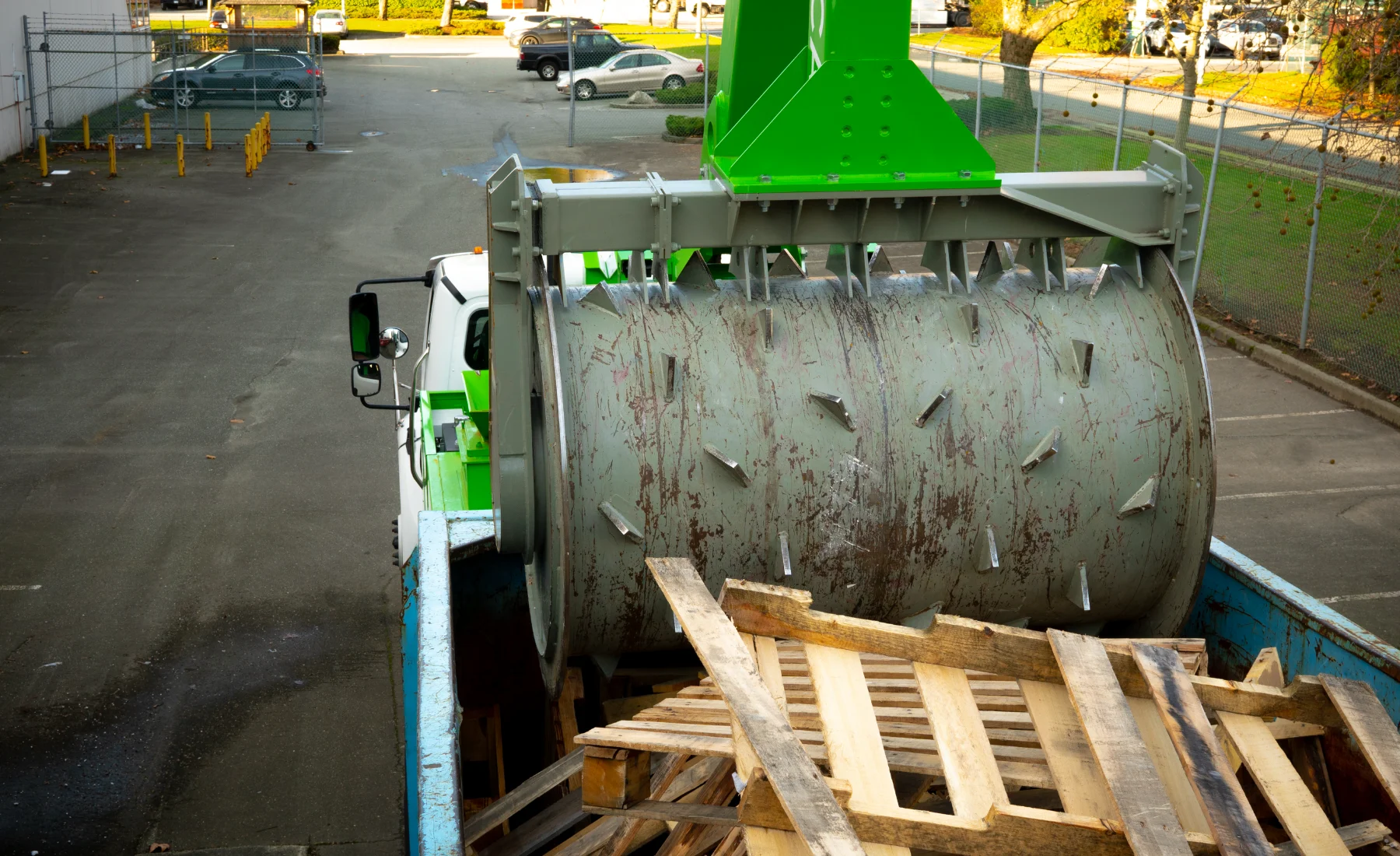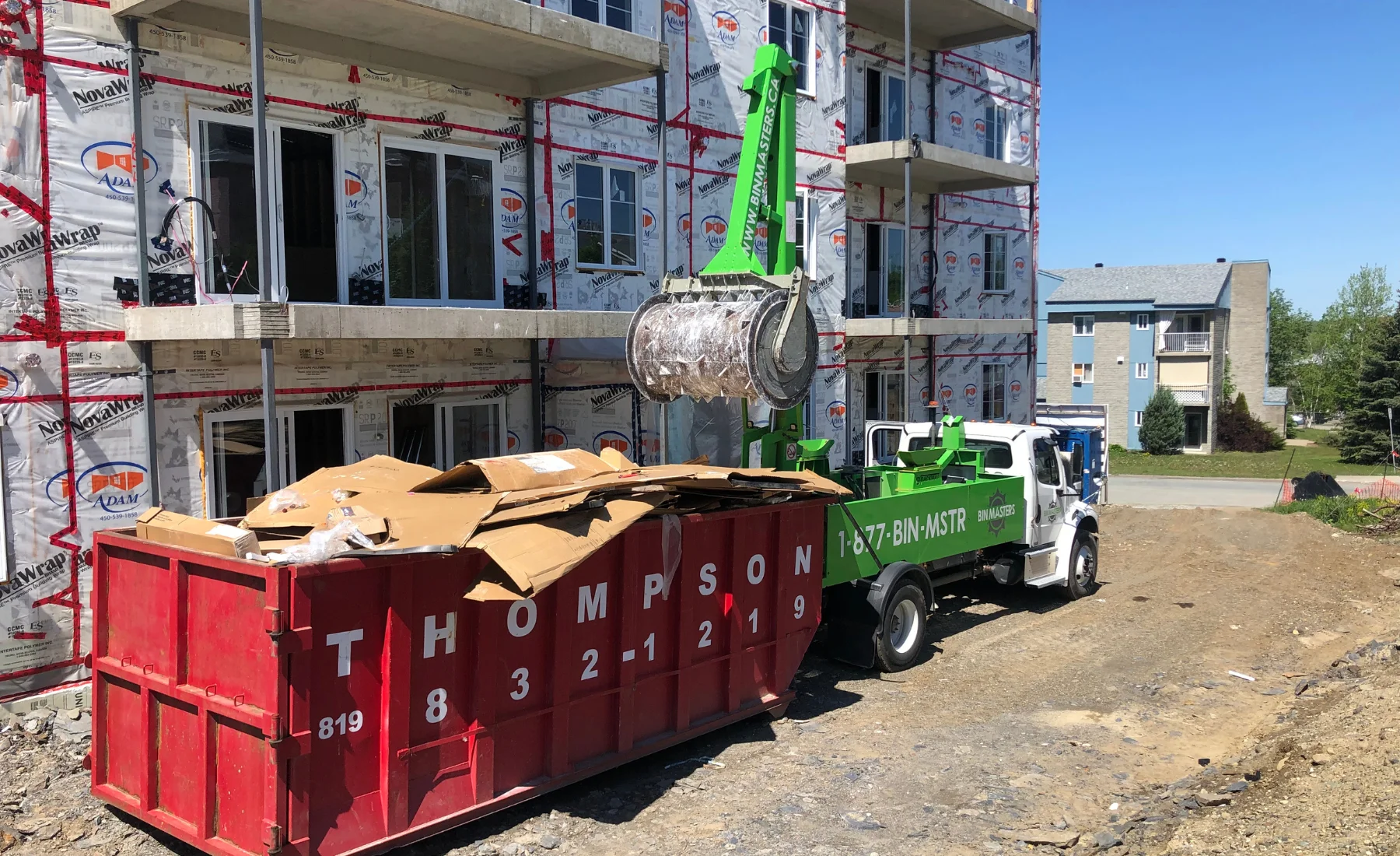For Quebec businesses evaluating waste management options, the financial comparison between traditional hauling and mobile compaction services represents a critical decision with significant long-term implications. While traditional waste hauling may seem straightforward with its familiar container rental and scheduled pickup model, mobile compaction offers a compelling alternative that can dramatically reduce costs over time. This comprehensive analysis provides Quebec business owners and facility managers with a detailed 5-year cost projection comparing these approaches across different business types and waste volumes.
Understanding the True Cost Structure of Waste Management
Before diving into specific projections, it's essential to understand the complete cost structure of waste management beyond the obvious monthly invoices.
Traditional Hauling: The Complete Cost Picture
Traditional waste hauling involves several direct and indirect cost components:
Direct Costs
- Container Rental Fees: Monthly charges for dumpsters or roll-off containers
- Hauling Charges: Per-pickup fees for waste transportation
- Disposal Fees: Landfill tipping fees based on weight or volume
- Overflow Charges: Premium fees for waste exceeding container capacity
- Emergency Pickup Fees: Additional charges for unscheduled service
According to Environment and Climate Change Canada's National Waste Characterization Report, these direct costs typically represent only 60-70% of the true cost of waste management for businesses.
Indirect Costs
- Space Utilization: Value of real estate dedicated to waste storage
- Administrative Overhead: Staff time for scheduling, vendor management, and invoice processing
- Operational Disruption: Productivity losses during waste handling and pickup
- Compliance Risk: Potential fines and penalties for improper waste management
- Environmental Impact: Carbon footprint and sustainability implications
Harvard Kennedy School's cost-benefit analysis of waste management enhancements indicates that these indirect costs typically add 30-50% to the visible expenses of traditional waste hauling.
Mobile Compaction: The Alternative Cost Structure
Mobile compaction services offer a fundamentally different cost structure:
Direct Costs
- Service Fees: Regular charges for scheduled compaction visits
- Reduced Hauling Charges: Fewer pickups due to increased waste density
- Disposal Fees: Often reduced due to more accurate weight-based billing
According to Waste Handling Solutions' comparative analysis, these direct costs are typically 30-50% lower than traditional hauling when measured over a multi-year period.
Indirect Benefits
- Space Optimization: Reduced footprint for waste storage
- Administrative Efficiency: Simplified scheduling and vendor management
- Operational Continuity: Minimized disruption from waste handling
- Compliance Assurance: Professional management of regulatory requirements
- Environmental Performance: Reduced carbon footprint from fewer transportation events
Mensah et al.'s assessment of Canadian waste management efficiencies indicates that these indirect benefits typically represent 20-35% additional value beyond direct cost savings.
5-Year Cost Projection Methodology
To provide Quebec businesses with accurate cost comparisons, this analysis employs a comprehensive methodology based on actual market data and established financial modeling techniques.
Data Sources and Assumptions
The projections incorporate the following data sources and assumptions:
- Current Market Rates: Average 2025 waste management costs in Quebec regions
- Inflation Projections: 2.8% annual increase for general costs based on Bank of Canada forecasts
- Waste Industry Inflation: 3.6% annual increase for waste-specific costs based on IBIS World industry data
- Fuel Cost Projections: 4.2% annual increase based on energy market forecasts
- Labor Cost Increases: 3.1% annual increase based on Quebec labor market trends
- Regulatory Cost Impact: Incremental increases based on projected environmental compliance requirements
These assumptions align with Next Move Strategy Consulting's projections for the Canadian waste management market, which anticipates 7.10% CAGR through 2030.
Business Categories and Waste Profiles
The analysis covers three representative Quebec business categories with distinct waste profiles:
Retail/Commercial (Medium Volume)
- Typical Size: 10,000-30,000 sq ft facility
- Waste Volume: 12-20 cubic yards weekly
- Waste Composition: Primarily packaging, cardboard, and general commercial waste
- Current Setup: 2-3 front-load dumpsters with 2-3 weekly pickups
Manufacturing/Industrial (High Volume)
- Typical Size: 30,000-100,000 sq ft facility
- Waste Volume: 30-60 cubic yards weekly
- Waste Composition: Production scrap, packaging, and mixed industrial waste
- Current Setup: Multiple front-load dumpsters or 1-2 roll-off containers with frequent service
Construction/Project-Based (Variable Volume)
- Typical Size: Variable project sites
- Waste Volume: 40-100 cubic yards weekly during active phases
- Waste Composition: Construction debris, packaging, and mixed materials
- Current Setup: Multiple roll-off containers with on-demand service
These profiles are based on Environment and Climate Change Canada's solid waste diversion and disposal data for Quebec businesses.
5-Year Cost Projection: Retail/Commercial Businesses
For medium-volume retail and commercial operations in Quebec, the 5-year cost comparison reveals significant differences between traditional hauling and mobile compaction approaches.
Traditional Hauling Cost Projection
YearContainer RentalHauling FeesDisposal FeesOther ChargesAnnual TotalCumulativeYear 1$3,600$15,600$7,800$1,200$28,200$28,200Year 2$3,730$16,160$8,080$1,240$29,210$57,410Year 3$3,870$16,740$8,370$1,280$30,260$87,670Year 4$4,010$17,350$8,670$1,330$31,360$119,030Year 5$4,150$17,980$8,980$1,380$32,490$151,520
This projection includes standard industry increases for container rental (3.7% annually), hauling fees (3.6% annually), and disposal costs (3.5% annually) based on IBIS World data for the Canadian waste management sector.
Mobile Compaction Cost Projection
YearCompaction ServiceReduced HaulingDisposal FeesOther ChargesAnnual TotalCumulativeYear 1$9,600$5,200$7,020$600$22,420$22,420Year 2$9,890$5,390$7,270$620$23,170$45,590Year 3$10,190$5,580$7,530$640$23,940$69,530Year 4$10,500$5,780$7,800$660$24,740$94,270Year 5$10,820$5,990$8,080$680$25,570$119,840
This projection reflects the impact of mobile compaction, which typically reduces hauling frequency by 65-70% while adding the cost of regular compaction service. The projection includes a 3.0% annual increase in compaction service costs based on industry averages reported by Waste Management.
5-Year Comparative Analysis
The 5-year comparison for retail/commercial businesses reveals:
- Traditional Hauling Total: $151,520
- Mobile Compaction Total: $119,840
- 5-Year Savings: $31,680 (20.9%)
- Average Annual Savings: $6,336
According to Kendal Journey's analysis of waste hauling charges, these savings are consistent with typical outcomes for medium-volume commercial operations implementing mobile compaction.
Additional Value Factors
Beyond direct cost savings, retail/commercial businesses typically experience:
- Space Reclamation: 100-200 sq ft of valuable commercial space freed (valued at $15,000-30,000 over 5 years in urban Quebec locations)
- Administrative Time: 2-3 hours weekly reduction in waste management oversight (valued at $7,800-11,700 over 5 years)
- Operational Benefits: Reduced congestion in loading areas and improved aesthetics
When these factors are included, the total 5-year advantage of mobile compaction increases to $54,480-73,380 for typical retail/commercial operations.
5-Year Cost Projection: Manufacturing/Industrial Businesses
For high-volume manufacturing and industrial operations in Quebec, the cost differential between traditional hauling and mobile compaction is even more pronounced.
Traditional Hauling Cost Projection
YearContainer RentalHauling FeesDisposal FeesOther ChargesAnnual TotalCumulativeYear 1$7,200$39,000$19,500$3,000$68,700$68,700Year 2$7,470$40,400$20,180$3,110$71,160$139,860Year 3$7,740$41,850$20,890$3,220$73,700$213,560Year 4$8,020$43,360$21,620$3,340$76,340$289,900Year 5$8,310$44,930$22,380$3,460$79,080$368,980
This projection reflects the higher volume and more frequent service requirements of manufacturing operations, with cost increases aligned with IBIS World's industry projections for the Canadian waste management sector.
Mobile Compaction Cost Projection
YearCompaction ServiceReduced HaulingDisposal FeesOther ChargesAnnual TotalCumulativeYear 1$19,200$11,700$17,550$1,500$49,950$49,950Year 2$19,780$12,120$18,160$1,550$51,610$101,560Year 3$20,370$12,560$18,800$1,610$53,340$154,900Year 4$20,980$13,010$19,460$1,670$55,120$210,020Year 5$21,610$13,470$20,140$1,730$56,950$266,970
For manufacturing operations, mobile compaction typically reduces hauling frequency by 70-75% while providing more frequent compaction service due to higher volumes. The projection includes a 3.0% annual increase in compaction service costs based on industry averages.
5-Year Comparative Analysis
The 5-year comparison for manufacturing/industrial businesses reveals:
- Traditional Hauling Total: $368,980
- Mobile Compaction Total: $266,970
- 5-Year Savings: $102,010 (27.6%)
- Average Annual Savings: $20,402
According to Chawla's cost-benefit analysis of waste management systems, these savings are consistent with typical outcomes for high-volume industrial operations implementing mobile compaction.
Additional Value Factors
Beyond direct cost savings, manufacturing/industrial businesses typically experience:
- Space Reclamation: 300-600 sq ft of valuable industrial space freed (valued at $30,000-60,000 over 5 years)
- Administrative Time: 4-6 hours weekly reduction in waste management oversight (valued at $15,600-23,400 over 5 years)
- Operational Benefits: Improved material flow, reduced congestion, and enhanced safety
When these factors are included, the total 5-year advantage of mobile compaction increases to $147,610-185,410 for typical manufacturing/industrial operations.
5-Year Cost Projection: Construction/Project-Based Businesses
For construction companies and project-based operations in Quebec, the variable nature of waste generation creates unique considerations in the comparison.
Traditional Hauling Cost Projection
YearContainer RentalHauling FeesDisposal FeesOther ChargesAnnual TotalCumulativeYear 1$12,000$78,000$39,000$6,000$135,000$135,000Year 2$12,440$80,810$40,370$6,220$139,840$274,840Year 3$12,900$83,720$41,780$6,440$144,840$419,680Year 4$13,370$86,740$43,250$6,670$150,030$569,710Year 5$13,860$89,870$44,760$6,910$155,400$725,110
This projection reflects the high volume and variable nature of construction waste, with significant hauling and disposal costs due to the bulky, uncompacted nature of construction debris. Cost increases align with the City of Bristol's independent cost analysis of solid waste utilities.
Mobile Compaction Cost Projection
YearCompaction ServiceReduced HaulingDisposal FeesOther ChargesAnnual TotalCumulativeYear 1$36,000$23,400$35,100$3,000$97,500$97,500Year 2$37,080$24,240$36,330$3,110$100,760$198,260Year 3$38,190$25,120$37,600$3,220$104,130$302,390Year 4$39,340$26,020$38,920$3,340$107,620$410,010Year 5$40,520$26,960$40,280$3,460$111,220$521,230
For construction operations, mobile compaction typically reduces hauling frequency by 65-70% while requiring more intensive compaction service due to the nature of construction debris. The projection includes a 3.0% annual increase in compaction service costs based on industry averages.
5-Year Comparative Analysis
The 5-year comparison for construction/project-based businesses reveals:
- Traditional Hauling Total: $725,110
- Mobile Compaction Total: $521,230
- 5-Year Savings: $203,880 (28.1%)
- Average Annual Savings: $40,776
According to Waste Removal USA's comparative analysis of commercial trash compactors versus traditional dumpsters, these savings are consistent with typical outcomes for high-volume, variable waste operations implementing mobile compaction.
Additional Value Factors
Beyond direct cost savings, construction/project-based businesses typically experience:
- Site Efficiency: Reduced footprint for waste management (valued at $20,000-40,000 over 5 years in terms of improved site utilization)
- Administrative Time: 6-8 hours weekly reduction in waste management coordination (valued at $23,400-31,200 over 5 years)
- Operational Benefits: Improved site safety, reduced congestion, and enhanced project flow
When these factors are included, the total 5-year advantage of mobile compaction increases to $247,280-275,080 for typical construction operations.
Key Factors Influencing Cost Projections
Several critical factors influence the comparative cost projections and should be considered by Quebec businesses evaluating their options:
Waste Volume Variability
The consistency of waste generation significantly impacts the comparative advantage of mobile compaction:
- High Consistency (Manufacturing): Greatest advantage for mobile compaction due to predictable scheduling
- Moderate Consistency (Retail): Significant advantage with seasonal adjustments
- Low Consistency (Construction): Advantage requires flexible scheduling and on-demand options
According to Tasnim et al.'s analysis of Canadian provincial waste management, Quebec businesses with highly variable waste generation can still achieve 80-90% of the savings of consistent generators by implementing flexible compaction scheduling.
Waste Composition
Different waste streams respond differently to compaction:
- Cardboard/Packaging: 70-80% volume reduction through compaction
- General Commercial: 60-70% volume reduction
- Construction Debris: 40-60% volume reduction depending on composition
- Manufacturing Scrap: 50-70% volume reduction depending on materials
KenBay's analysis of commercial compactor ROI indicates that businesses should consider their specific waste composition when projecting savings, as higher compaction ratios directly correlate with increased cost advantages.
Location Factors
Geographic location within Quebec influences several cost variables:
- Urban Centers (Montreal, Quebec City): Higher hauling costs but better service availability
- Suburban Areas: Moderate costs with good service coverage
- Rural Regions: Lower base costs but higher transportation premiums and limited service options
Environment and Climate Change Canada's solid waste diversion and disposal data indicates that urban Quebec businesses typically achieve 10-15% higher savings from mobile compaction compared to rural operations due to higher baseline hauling costs.
Regulatory Trends
Evolving waste regulations in Quebec are likely to impact future costs:
- Increasing Landfill Fees: Projected to rise faster than inflation (5-7% annually)
- Stricter Diversion Requirements: Potential mandates for increased recycling
- Carbon Pricing: Growing impact on transportation-intensive waste services
Next Move Strategy Consulting's market analysis projects that these regulatory factors will increase the cost advantage of mobile compaction by an additional 5-10% over the next five years compared to current projections.
Decision Framework for Quebec Businesses
To help Quebec businesses make informed decisions about their waste management approach, consider this evaluation framework:
When Mobile Compaction Offers Maximum Advantage
Mobile compaction typically delivers the greatest financial benefit under these conditions:
- Waste volume exceeds 10 cubic yards weekly
- Current hauling frequency is twice weekly or more
- Waste stream includes significant compactible materials (cardboard, packaging, general waste)
- Space constraints exist at the business location
- Multiple waste generators operate within the same organization or geographic cluster
According to Waste Handling Solutions' comparative analysis, businesses meeting at least three of these criteria typically achieve the upper range of projected savings.
When Traditional Hauling May Be Preferable
Traditional hauling may remain advantageous in these scenarios:
- Very low waste volumes (less than 4 cubic yards weekly)
- Waste composition primarily consists of non-compactible materials
- Extremely remote locations with limited service availability
- Temporary operations with duration less than 6 months
Harvard Kennedy School's cost-benefit analysis indicates that these scenarios represent less than 15% of Quebec commercial waste generators.
Hybrid Approaches
Some businesses benefit from hybrid approaches:
- Seasonal Compaction: Increased service during peak periods
- Material-Specific Compaction: Targeting high-volume waste streams
- Multi-Business Sharing: Coordinated service across neighboring operations
Mensah et al.'s assessment of Canadian waste management efficiencies indicates that these hybrid approaches typically deliver 70-85% of the benefits of full implementation while addressing specific operational constraints.
Implementation Considerations for Quebec Businesses
For Quebec businesses transitioning to mobile compaction, several implementation factors can maximize financial benefits:
Contract Structuring
Optimal contract terms include:
- Performance-based pricing tied to actual waste reduction
- Flexible scheduling options to accommodate business cycles
- Scalable service levels without penalty clauses
- Clear performance metrics and reporting requirements
Chawla's cost-benefit analysis indicates that well-structured contracts typically increase realized savings by 10-15% compared to standard service agreements.
Staff Training and Procedures
Effective implementation requires:
- Clear waste handling procedures for all staff
- Training on proper material preparation for compaction
- Designated responsibilities for waste management oversight
- Regular performance feedback and continuous improvement
Waste Management's analysis of commercial compactor services indicates that comprehensive staff training typically improves compaction effectiveness by 15-20%.
Monitoring and Optimization
Ongoing management should include:
- Regular review of waste volumes and composition
- Adjustment of compaction schedules based on actual needs
- Tracking of key performance indicators
- Periodic reassessment of service requirements
Kendal Journey's analysis of waste hauling charges indicates that businesses implementing active monitoring typically achieve 10-15% greater savings compared to passive implementation.
Conclusion: The Clear Financial Advantage
The 5-year cost projections demonstrate a compelling financial case for mobile compaction across most Quebec business categories:
- Retail/Commercial: 20.9% direct cost savings ($31,680 over 5 years)
- Manufacturing/Industrial: 27.6% direct cost savings ($102,010 over 5 years)
- Construction/Project-Based: 28.1% direct cost savings ($203,880 over 5 years)
When including indirect benefits and value factors, the total 5-year advantage increases to:
- Retail/Commercial: $54,480-73,380
- Manufacturing/Industrial: $147,610-185,410
- Construction/Project-Based: $247,280-275,080
These projections, based on current Quebec market conditions and established financial modeling, provide a clear picture of the long-term financial advantage of mobile compaction for most business categories.
As waste management costs continue to rise faster than general inflation and regulatory requirements become more stringent, the comparative advantage of mobile compaction is likely to increase further over time. Quebec businesses making this transition not only realize immediate cost benefits but position themselves advantageously for future market conditions.
How BinMasters Quebec Can Help
At BinMasters Quebec, we specialize in helping businesses across the province implement cost-effective mobile compaction solutions tailored to their specific needs. Our team of waste management experts can:
- Conduct a comprehensive waste audit to establish your baseline
- Develop a customized 5-year cost projection for your specific operation
- Create a tailored mobile compaction schedule optimized for your waste profile
- Implement seamless transition from traditional hauling to mobile compaction
- Provide ongoing optimization to maximize your cost savings
Contact BinMasters Quebec today for a free consultation and personalized 5-year cost projection comparing traditional hauling to mobile compaction for your specific business needs.
Ready to transform your waste management approach and realize significant cost savings? Contact our team today to schedule your free consultation and cost analysis.
.svg)
